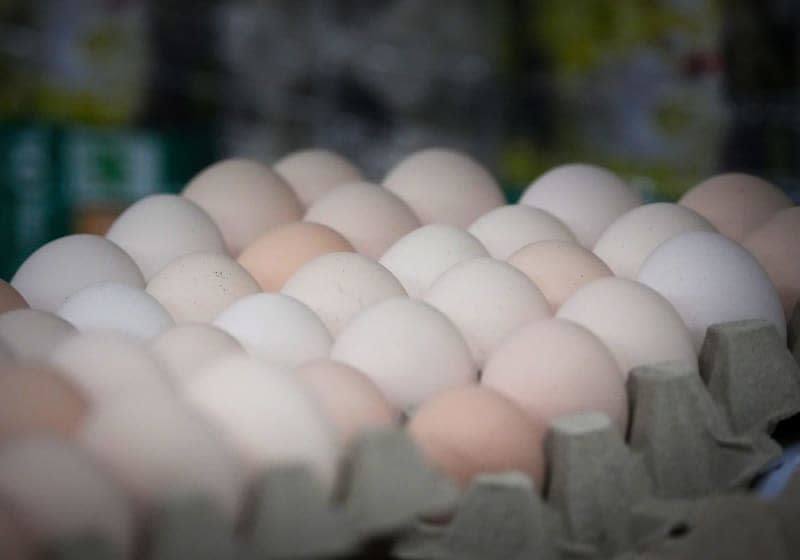German farmers are switching egg-laying hens from brown to white

German chicken farmers are switching over to white hens in growing numbers, meaning that the brown eggs long familiar to German consumers could disappear from supermarket shelves in the coming years.
"We are already seeing fewer and fewer brown eggs today, and soon there will probably be none at all," said Henner Schönecke, chairman of the Association of German Egg Producers.
The trade group said that brown eggs currently account for about 30% of the eggs on regular supermarket shelves in Germany, but have largely vanished from discount stores.
Only a decade ago, more brown eggs were sold in Germany than white eggs.
Only a handful of regional farmers continue to keep brown hens, and that number is declining, as many German farmers see white hens as a superior breed for producing eggs, Schönecke said.
"White hens have greater genetic potential than brown hens. They live and lay longer," said Schönecke. "White hens are easier to keep and more mobile than brown hens."
Schönecke said white hens are often easier to supply with food and water, and are also lighter and smaller, as are their eggs.
That makes laying eggs less strenuous for white hens, Schönecke said.
At least among the chicken breeds in Germany, Schönecke said that brown-feathered hens lay brown eggs while white hens lay white eggs.
Schönecke, 51, is a chicken farmer himself and runs a fourth-generation family business near the northern German city of Hamburg. He switched completely to white hens a year and a half ago.
For cooking and eating, Schönecke said there is no noticeable difference between the colours any more. He added that brown eggs once tended to have firmer shells but no longer do, and there is no difference in taste.
A recent consumer survey by the Central Association of the German Poultry Industry found that brown eggs remain more popular with older people, but that younger consumers don't care as much about the colour of eggs and are more interested in things like conditions for the animals and whether the eggs were produced locally.
"The majority of consumers are largely indifferent to the shell colour," a spokesman for the German supermarket chain Rewe told dpa.
But one major exception is around the Easter holiday, where white eggs are clearly favoured because they are easier to decorate, he said.


